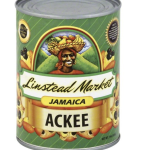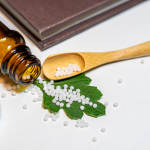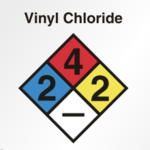It's not often that one stumbles across one million pennies in their attic. But this is just what happened to a California family. Those folks found sacks of pre-1982 pennies weighing 2.7 tons. Could there be a better time to look at the fascinating and colorful properties of copper? I think not.
Chemicals & Chemistry
A recent study linking marijuana use to schizophrenia attracted widespread attention. Now that the excitement has died down, let's take a closer look at the science. How does Pfizer's weight-loss pill compare to Ozempic, the obesity treatment beloved by celebrities the world over?
Cutting the dose of Tylenol in opioids makes the drugs safer. Why? Pharma company Johnson & Johnson is developing a drug that could reduce liver damage caused by Tylenol — which J&J also sells.
Our drug laws are almost supernaturally stupid. Part of this, aside from that they're largely made by morons, is the lack of knowledge of even basic chemistry, which could, at least, introduce a little sanity to the process. Here's a bit.
The EPA recently completed a draft health assessment on Chromium-VI that is causing controversy in the scientific community because it concludes that Chromium-VI is likely to cause cancer through drinking water. This conclusion is at odds with EPA’s previous assessments, much of the scientific literature, and assessments by other countries, including Canada.
A concerning shortage of Adderall, one of the drugs commonly used to treat attention deficit hyperactivity disorder (ADHD), is putting patients at risk. What caused it, and how can we fix it? The EPA has set new guidelines to keep PFAS out of drinking water. There's a problem, however: the agency's standards are absurd.
No matter how you slice it "Jamaican vomiting sickness" is something you want to avoid. You can do so by not eating the ackee fruit, a staple of that Caribbean nation – or at least waiting until it's ripe. Here's a lesson about metabolic toxicity wrapped in a mini-travelogue.
Will Tylenol alleviate severe pain? It will not, yet patients are routinely given the drug after major surgery. Thank your congressman for such insanity. Meanwhile, the drug store conglomerate CVS displays real pain relievers right next to useless homeopathic "remedies." A lawsuit could put an end to that dubious marketing practice.
It is astounding (although not surprising) how badly the media botched its reporting on "deadly vinyl chloride," as if residents of Ohio didn't have enough to worry about. My opinion piece in Reason Magazine addresses just this. Scare, not science.
Peer-review is supposed to keep sloppy and fraudulent research out of academic journals. Sadly, the process fails all too frequently. What can we do to prevent further corruption of our science publications? Consumers often avoid supposedly harmful chemicals to reduce their cancer risk—then they drink alcohol, a well-known carcinogen, without a second thought. Why?
News coverage of the East Palestine train derailment has ranged from hysteria to hysteria. One would think that one of the most dangerous chemicals in the world is being discharged from the train. Has anyone bothered to actually examine how toxic vinyl chloride is? You may be surprised.
Vinyl chloride is a dangerous chemical, so the recent derailment and fire of a train carrying a large quantity of it is bad news. Long-time ACSH friend Dr. Joe Schwarcz gives us a lesson on the history and toxicity of the chemical.











